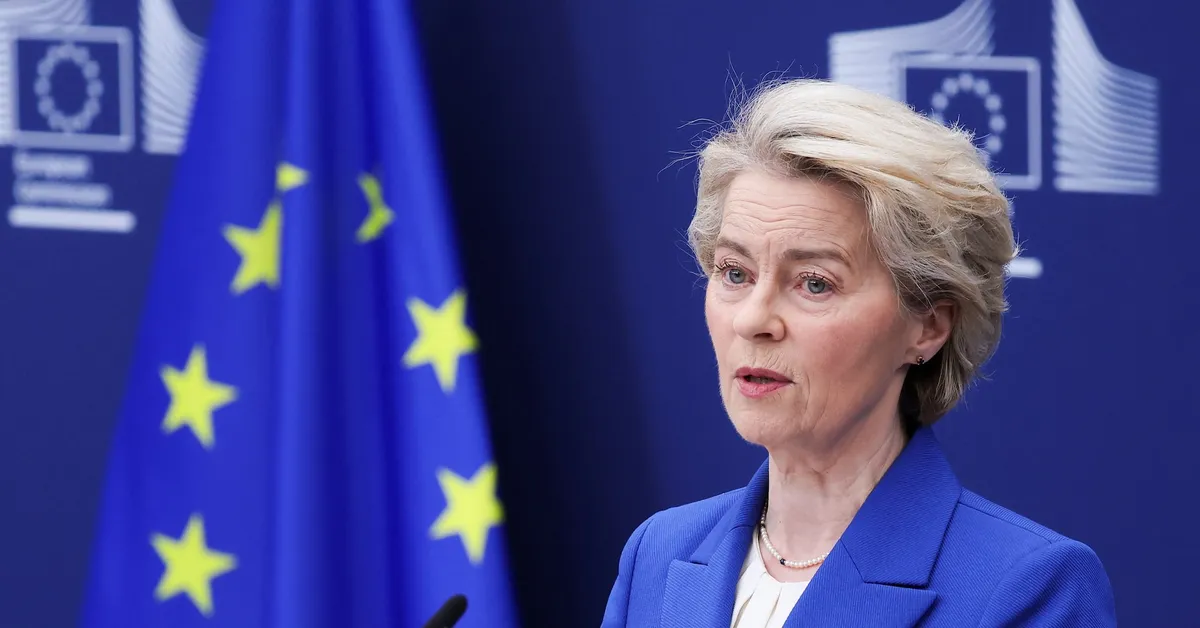
On March 4, 2024, the European Commission announced a significant proposal to borrow up to €150 billion (approximately $157.76 billion) aimed at strengthening the defence capabilities of EU governments. This initiative is fueled by the ongoing ramifications of Russia's war in Ukraine and increasing uncertainty regarding the United States' commitment to European security. European Commission President Ursula von der Leyen emphasized the gravity of the current geopolitical climate, stating, "We are living in the most momentous and dangerous of times. We are in an era of rearmament. And Europe is ready to massively boost its defence spending."
This proposal surfaced just a day after U.S. President Donald Trump announced a pause in military aid to Ukraine, which underscores a growing rift between European leaders and Washington regarding the continent's security strategy and its approach to Russia. Von der Leyen's funding plan is designed to support pan-European defence priorities, including air defence, missiles, and drones, as part of a larger strategy that could mobilize up to €800 billion for European defence initiatives.
EU leaders are set to engage in preliminary discussions about these proposals during a special summit focused on defence and the situation in Ukraine on Thursday. While some aspects of the funding package will require approval from EU governments, the initiative marks a crucial step towards enhancing the continent's military readiness.
Trump has criticized European countries for their perceived failure to invest adequately in their defence, relying heavily on the NATO alliance for protection. In response, European leaders assert that they are now taking decisive actions to increase their defence budgets. The Commission’s package primarily encourages EU member states to allocate more funds towards defence while repurposing existing financial resources instead of introducing new EU money.
Notably absent from the proposal is a plan for joint borrowing to provide grants instead of loans for defence projects, a suggestion championed by nations like the Baltic states and France, but opposed by Germany and the Netherlands. Polish Defence Minister Wladyslaw Kosiniak-Kamysz expressed support for grants, stating, "I believe that would be more effective." Meanwhile, German Foreign Minister Annalena Baerbock welcomed the funding initiative as a significant first step towards enhancing European defence capabilities.
As part of this comprehensive plan, the European Investment Bank announced it would lift existing financing limits for defence projects and expand the range of eligible expenditures, while still maintaining a prohibition on funding for weapons and ammunition. Furthermore, the Commission proposed that defence spending be exempt from the fiscal constraints imposed by EU regulations on government debt. Von der Leyen stated that if member states could increase their defence spending by 1.5% of GDP on average, this could create fiscal space of nearly €650 billion over four years.
European leaders are facing mounting pressure to ramp up their defence budgets, especially as Trump's potential return to power has led many to question the reliability of U.S. protection via NATO. In 2024, EU members collectively spent €326 billion on defence, accounting for about 1.9% of GDP, according to statistics from the European Defence Agency. Leaders across Europe have asserted that defence spending must increase significantly in the coming years.
Additionally, the Commission suggested that funding from the EU's cohesion funds, intended to equalize living standards across Europe, could also be reallocated for defence purposes. Lucas Guttenberg, a European economics expert at the Bertelsmann Stiftung think tank, commented that the Commission's approach aims to ensure that fiscal policies do not hinder defence initiatives. However, he noted that the plan addresses the issue in a short-term manner, which may not effectively resolve the fundamental challenge of securing long-term funding for defence.
This bold initiative by the European Commission marks a pivotal shift in the EU's approach to defence, reflecting the urgent need to adapt to a rapidly changing security landscape.